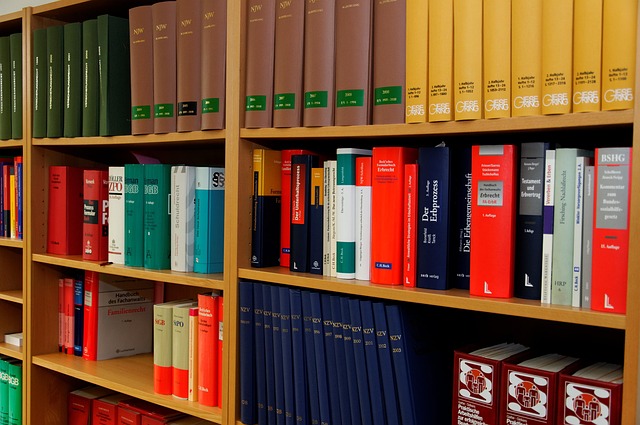The RF securities industry's regulation evolved from combatting white-collar crime to addressing digital trading and technology-driven frauds. Complex property ownership disputes, guided by court cases involving property ownership issues, led to intricate legal frameworks aimed at investor protection. Notable cases set precedents for contract interpretation and regulatory compliance, influencing strategies in high-stakes battles. Stricter compliance standards, driven by these cases, enhance transparency, accountability, and ethical conduct. Regulatory adaptations in digital transformation, data security, and consumer protection are ongoing, with court cases playing a crucial role in exposing loopholes and encouraging clearer disclosures.
The regulation of the RF securities industry has evolved significantly over time, with a historical overview tracing back to early trading practices. This article delves into the intricate legal framework surrounding property ownership disputes within the RF sector, highlighting key moments in judicial interpretations. Through an analysis of notable court cases involving property ownership issues, we gain insights into the current landscape and its impact on industry best practices. Furthermore, we explore future trends and regulatory changes that may shape the direction of this dynamic market.
- Historical Overview of RF Securities Regulation
- Legal Framework for Property Ownership Disputes
- Notable Court Cases: A Closer Look
- Impact on Industry Best Practices
- Future Trends and Regulatory Changes
Historical Overview of RF Securities Regulation
The evolution of RF (Radio Frequency) securities industry regulation traces back to the early 20th century when the need for structured oversight became apparent. Historically, regulatory bodies focused on addressing white collar and economic crimes, often stemming from complex financial schemes and court cases involving property ownership issues. These early efforts laid the groundwork for modern-day regulations aimed at protecting investors and maintaining market integrity.
Over time, regulatory frameworks have expanded to meet the evolving nature of financial markets. The rise of digital trading and advanced communication technologies has prompted adaptations in how securities are regulated. Regulatory bodies across the country have been busy navigating these changes, ensuring that rules keep pace with innovative investment strategies and technology-driven frauds, while also winning challenging defense verdicts that strengthen market oversight.
Legal Framework for Property Ownership Disputes
The legal framework governing property ownership disputes within the RF securities industry is a complex web of regulations, designed to ensure fairness and protect investors. These disputes often arise from complexities in investment agreements, fraud, or contractual breaches. The resolution process typically involves both civil and criminal legal avenues, with courts playing a pivotal role in adjudicating these matters.
Judicial precedents, set by significant court cases involving property ownership issues, serve as guiding lights for practitioners navigating this domain. These cases not only interpret relevant laws but also shape strategies for both plaintiffs and defendants, especially in white-collar and economic crimes. The outcome of such legal battles can have profound implications, with the possibility of a complete dismissal of all charges being a potential outcome for those accused, particularly when employing a robust white-collar defense strategy.
Notable Court Cases: A Closer Look
Notable Court cases offer a lens into the intricate dynamics of RF Securities Industry Regulation. High-stakes cases involving property ownership issues have shaped legal precedents, setting important benchmarks for future transactions and disputes. These legal battles often pit sophisticated financial institutions against one another, with each side presenting complex arguments centered around contract interpretation, regulatory compliance, and fair market value assessments.
A close examination of these court cases reveals the critical importance of meticulous documentation, transparent dealings, and adherence to regulatory guidelines. Winning challenging defense verdicts in such cases not only reinforces the integrity of the financial markets but also underscores the significance of proactive legal strategies tailored to the respective business environment.
Impact on Industry Best Practices
The RF Securities Industry Regulation has had a profound impact on shaping best practices within the industry. As regulatory frameworks tighten, companies are compelled to adapt and implement stringent measures to ensure compliance. This shift has led to enhanced transparency and accountability, with a greater focus on ethical conduct. For instance, many firms have adopted robust anti-money laundering (AML) protocols inspired by landmark court cases involving property ownership issues, ensuring that their respective businesses operate within legal boundaries.
Moreover, the increased regulatory scrutiny has prompted a surge in general criminal defense strategies. Securities firms now prioritize internal risk management and compliance programs to protect against potential legal pitfalls. This proactive approach not only mitigates the financial risks associated with non-compliance but also fosters trust among investors. As a result, industry players are more vigilant in addressing issues like insider trading, fraud, and abusive trading practices, thereby upholding the integrity of the market for his clients.
Future Trends and Regulatory Changes
As the securities industry continues to evolve, so too do the regulatory landscape and future trends. One area that is gaining significant attention is the digital transformation of investment practices, with a focus on enhancing data security and consumer protection. With the increasing complexity of financial markets, regulators are faced with the challenge of keeping pace with innovative trading strategies and technologies, such as high-frequency trading and blockchain. This requires constant adaptation and updates to existing regulations to ensure fairness and transparency.
Furthermore, court cases involving property ownership issues have played a crucial role in shaping regulatory changes. These legal battles often highlight loopholes or inconsistencies in current laws, prompting legislative bodies to reassess and strengthen regulations. For instance, recent case law has emphasized the importance of clear and concise disclosure in securities offerings, for his clients, across all stages of the investigative and enforcement process. This trend reflects a broader movement towards greater accountability and transparency within the industry, with an eye on protecting investors and maintaining public trust. Additionally, the growing influence of philanthropic and political communities is driving regulatory changes aimed at promoting sustainable and ethical investment practices.
The regulation of the RF securities industry has evolved significantly over time, with a robust legal framework now in place to address property ownership disputes. Notable court cases involving property ownership issues have further clarified rights and responsibilities, acting as a guide for best practices within the industry. As we look towards the future, anticipated regulatory changes will continue to shape this dynamic landscape, ensuring fairness and transparency in the resolution of complex financial matters, including those pertaining to Court Cases Involving Property Ownership Issues.






